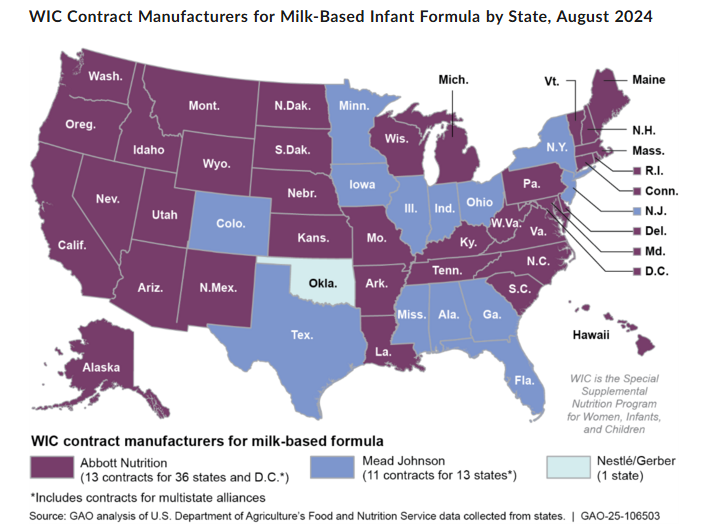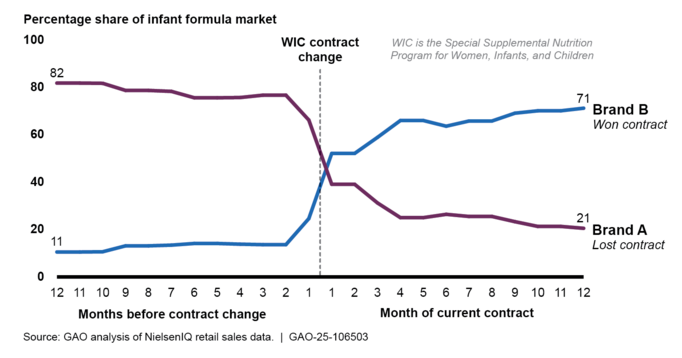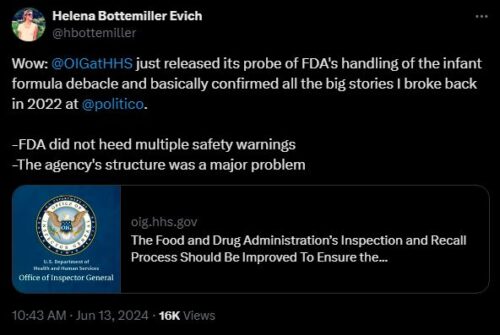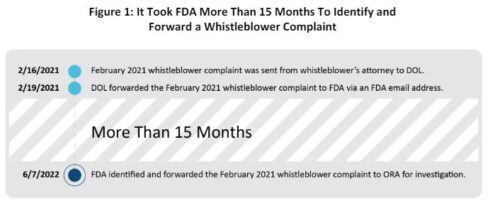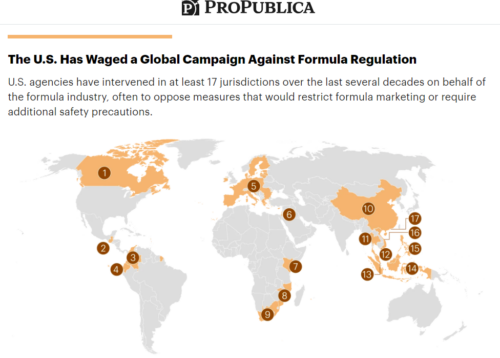The infant formula scandals: will they ever stop?
I’m not sure why we’ve seen so many problems with contaminated infant formula lately, but this must stop—and be stopped. Infants who are not breast fed are dependent on formula. Families buying formula for their infants assume it is safe. If it’s not, it’s a disaster.
The ByHeart formula disaster
This one is about botulism in ByHeart formula.
Oregon baby is still battling infant botulism after ByHeart formula exposure: A Portland, Oregon, baby got sick with infant botulism after drinking contaminated ByHeart formula donated through a program that helps poor and homeless families. What happens to these babies is devastating.
Ashaan Carter, now 10 months old, was hospitalized twice and remains on a feeding tube after contracting the dangerous infection that has sickened more than 50 babies across the U.S.…Ashaan was hospitalized for nearly two weeks in November and discharged without a feeding tube. His health rapidly declined, including dramatic weight loss, and he was hospitalized again in December…[he] had to have the feeding tube down his throat replaced because his muscles remain weak…He is having to relearn how to crawl and to talk…Since June 2022, nearly 24,000 cans of formula have been distributed to groups that aid homeless and other vulnerable families, the company said.
Food safety lawyer Bill Marler is representing families with children injured by the families. Here’s what he and Food Safety News have to say about all this:
- The ByHeart Botulism Outbreak is a Moral Disaster
- ByHeart, Safeway, FDA and ADHS – Botulism in a can still on a store shelf?
- I have Questions: Where else did the supplier of whole milk powder implicated by the FDA in the ByHeart Botulism Outbreak send its product? Is that supplier linked to other infant botulism cases?
- FDA – ByHeart is Source of Botulism Outbreak – Tainted Ingredient Likely
- Unnamed Suppler to ByHeart of Dried Whole Milk tests positive for Botulism
- Question? FDA and CDC has been silent on ByHeart Botulism Outbreak since December 17, 2025 – What’s up?
- Feds find raw ingredient supplier behind infant formula outbreak: Neither the CDC nor the FDA will name the company.
The Nestlé infant formula disaster
The company, to which I am not related, recalled infant formula products from nearly 60 countries, because cereulide, a toxin that causes nausea and vomiting, was found in an ingredient—ARA oil—used in making it.
ARA stands for arachidonic acid, a long-chain essential omega-6 fatty acid found in breast milk.Like many other nutrient ingredients, it was made in China. That company is now testing its products.
Here’s what’s happening:
- Nestlé infant formula scandal deepens as sickness cases emerge: British infant hospitalised after consuming recalled Nestlé formula – key questions about the contamination risk remain unanswered… Read more
- Nestlé CEO issues apology following infant formula scandal: Nestlé’s global infant formula recall sparks safety concerns and transparency backlash – can the food giant restore trust?… Read more
- Danone and Lactalis embroiled in global infant formula crisis: Two dairy majors have pulled infant formula products as cereulide fears spread beyond Nestlé… Read more
- Nestlé and Lactalis face lawsuit over infant formula scandal: The CPG majors are facing litigation for their handling of infant formula recalls over possible toxin contamination.
- Nestlé’s infant formula recall: What’s next for the industry? We look at the supply, safety and quality control implications for infant formula manufacturers and ingredient suppliers… Read more
- First Nestlé, now Danone: The infant formula contamination is spreading: The detection of cereulide in a batch of Aptamil infant formula pushes Danone deeper into the crisis… Read more
The heavy metals crisis
RFK Jr. says heavy metals in baby formula study coming in April
Kennedy, speaking at a health-themed rally in Harrisburg, Pa., said the studies set to publish in April will focus on the presence of contaminants including cadmium, mercury, and lead in baby formula. “We’re going to be regulating baby formula companies so they’re giving you something that is as close to mother’s milk as we can get,” Kennedy said.
Officials at HHS and FDA launched “Operation Stork Speed” in March 2025 to improve the safety and supply of infant formula. A Bloomberg Law investigation published in January 2023 found that all but one of 33 baby food products tested by a laboratory contained at least two of three heavy metals: lead, arsenic, and cadmium…As part of the baby formula review, FDA is updating which nutrients manufacturers are required to include in their products. Kennedy said that’s because some of the existing 30 required nutrients were based on “archaic science.”
Comment
What’s going on here? Why are infant formula supply chains so sloppy? Isn’t anyone minding the store?
I can’t believe this situation. What a dilemma it causes for parents who for whatever reason are not breast-feeding their infants.
Maybe it’s time to go back to the do-it-yourself days using evaporated milk, as was done before commercial infant formula was invented? [**But see NOTE below].
* 13 oz. can of evaporated whole milk (reduced fat, skim, and sweetened condensed milk will not provide enough calories or nutrition)* 18–19 oz. of water* 2 tablespoons of white granulated sugar or 1 tablespoon of light corn syrup

